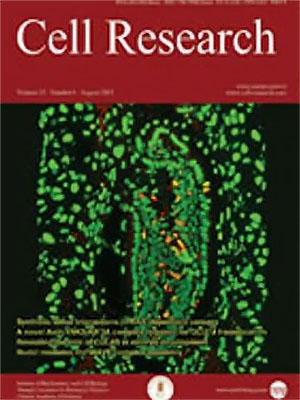
Volume 15, No 9, Sep 2005
ISSN: 1001-0602
EISSN: 1748-7838 2018
impact factor 17.848*
(Clarivate Analytics, 2019)
Volume 15 Issue 9, September 2005: 739-744
LETTERS TO THE EDITOR
Generation and characterization of novel stromal specific antibodies
Sapna HALDER1,*, Debbie L.HARDIE2,*, Dagmar SCHEEL-TOELLNER2, Mike SALMON2, Christopher D. BUCKLEY2
1Prostate Cancer Research Centre, Institute of Urology
(3rd floor), University College London, 67 Riding House Street,
London W1W 7EJ, UK
2Rheumatology Research Group, MRC Centre for Immune Regulation, Institute of Biomedical Research
(3rd or 4th floor), University of Birmingham, Birmingham B15 2TT, U K
Correspondence: Sapna Halder, Debbie Hardie(s.halder@ucl.ac.uk d.l.hardie@bham.ac.uk)
Rheumatoid synovial fibroblasts were used as an immunogen to produce monoclonal antibodies selected for their reactivity with stromal cell antigens. Mice were immunised with low passage whole cell preparations and the subsequent hybridomas were screened by immunohistochemistry on rheumatoid synovium and tonsil sections. The aim was to identify those antibodies that recognised antigens that were restricted to stromal cells and were not expressed on CD45 positive leucocytes. A significant number of antibodies detected antigen that identified endothelial cells. These antibodies were further characterised to determine whether the vessels identified by these antibodies were vascular or lymphatic. From five fusions clones were identified with predominant reactivity with: 1) fibroblasts and endothelial cells; or 2) broad stromal elements (fibroblast, endothelium, epithelium, follicular dendritic cells). A fibroblast-specific antibody that did not also identify vessels was not generated. Examples of each reactivity pattern are discussed.
FULL TEXT | PDF
Browse 2031


